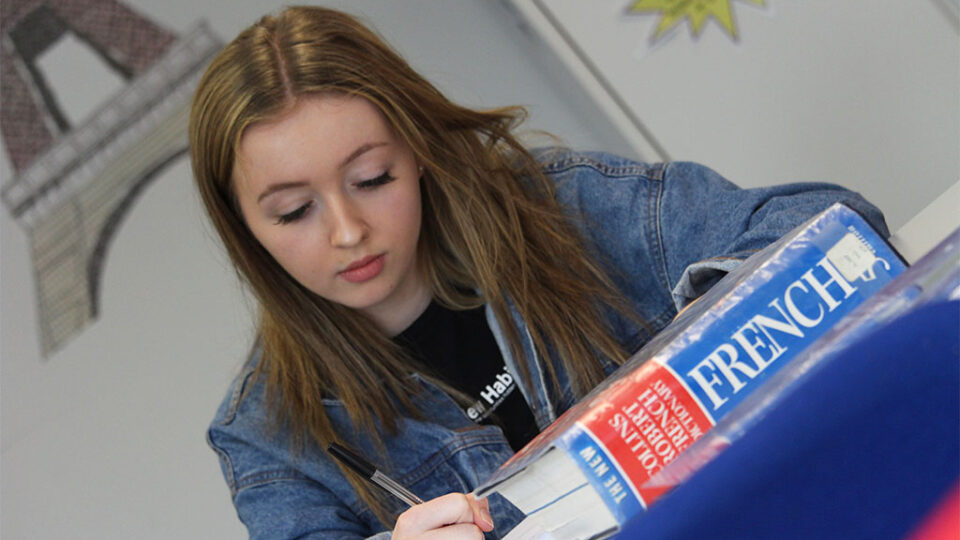Spanish
Spanish is becoming one of the most important languages in Europe and it is the most studied foreign language after English. In a worldwide context, with some 400 million speakers, it is the third most commonly spoken language in the world (after English and Chinese), which means that, if you are fluent in English and Spanish, you can communicate with more than half the population in the whole world. It is an official language on four continents and is of historical importance elsewhere.
Furthermore, knowing Spanish can help speakers of English broaden their vocabulary and understand the structure of their native language better. Spanish comes from Latin and often, the same Latin roots are the basis of many sophisticated words in English, so Spanish learners can also become better at English.
This A Level Spanish course is designed to encourage you to develop an interest in, and enthusiasm for language learning. Throughout the course you will develop your understanding of Spanish in a variety of contexts and genres and will learn to communicate confidently, clearly and effectively in Spanish for a range of purposes.

The course is arranged into two Areas of Interest with sub-themes:
Area of Interest 1 – Social issues and trends,
Theme 1. Being a young person in Spanish-speaking society
- Families and citizenship
- Youth trends and personal identity
- Education and employment opportunities
Theme 2. Diversity and difference, including:
- Migration and integration
- Cultural identity and marginalisation
- Cultural enrichment and celebrating difference
- Discrimination and diversity
Area of Interest 2 – Political, intellectual and artistic culture
Theme 1. Understanding the Spanish-speaking world
- Regional culture and heritage in Spain, Spanish-speaking countries and communities
- Media, art, film and music in the Spanish-speaking world
Theme 2. The two Spains: 1936 onwards
- El franquismo – origins, development and consequences
- Post-Civil War Spain – historical and political repercussions
- The Spanish Civil War and the transition to democracy (represented in the arts, cinema, literature, art and photography)
- Spain – coming to terms with the past? “Recuperación de la memoria histórica”
The course also covers the study of a literary work and a feature film.
Languages are academic subjects and, therefore, very appreciated by Universities and would be ideal for those students considering applying to study in the country’s top institutions.
A high proportion of our students follow the subject on to Higher Education, gaining degrees in Languages, Hispanic Studies, International Business, Linguistics, European Studies and similar courses.
Learning a foreign language develops a whole set of mental, social, and cultural skills and provides students with excellent and varied career opportunities and life-long skills. Some of these skills include; being able to communicate well, both orally and in writing, the ability to gather information, assess and interpret it, lead and participate in discussions and groups, organise workload and work to deadlines, develop opinions and propose ideas and read pages of text and pick out the essential points.
Language degrees do not lead just to being a teacher, translator or interpreter (although these jobs make for an extremely interesting career). It can mean working in one of many industries, in which your languages, combined with expertise in another field, can really help you to get on.
The Independent recently featured an article on how languages can lead to a dream job from tennis tournaments to the wine industry. How languages can lead to a dream job








